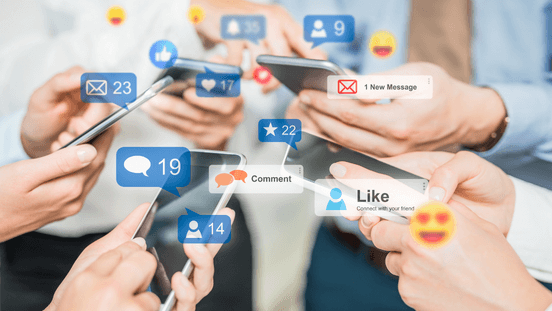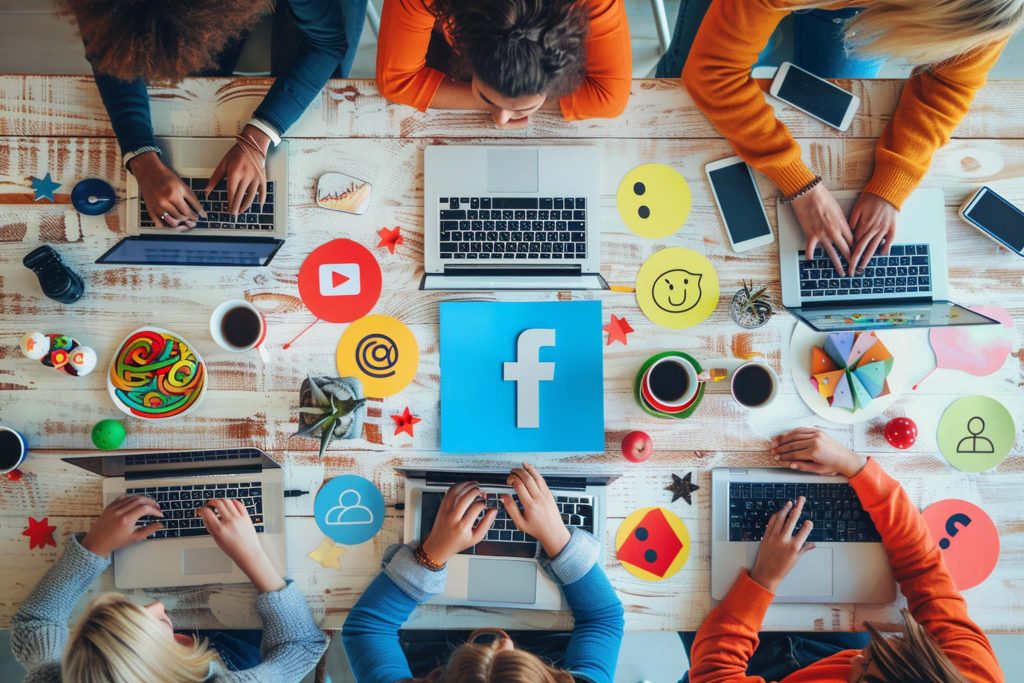In today’s digital era, social media has become a cornerstone of effective marketing strategies, especially when it comes to event promotion and engagement. Whether you’re organizing a corporate conference, a product launch, a festival, or a local meetup, leveraging social media can significantly enhance your event’s visibility and participation. Here’s a look at why social media marketing is essential for event engagement and how it can help you achieve your goals.

1. Increased Visibility and Awareness
One of the primary advantages of using social media for event marketing is the ability to reach a broader audience. With billions of users on platforms like Facebook, Instagram, Twitter, and LinkedIn, your event can gain visibility beyond your existing network. By creating event pages, using relevant hashtags, and sharing engaging content, you can attract potential attendees who may not have heard about your event otherwise.
Example:
- Event Pages: Creating a dedicated event page on Facebook allows users to RSVP, invite friends, and share the event, organically increasing visibility.
2. Real-Time Engagement and Interaction
Social media allows for real-time interaction with your audience before, during, and after the event. You can engage with potential attendees by answering their questions, providing updates, and sharing behind-the-scenes content. During the event, live tweeting or sharing live videos can keep the excitement alive and encourage online participation.
Example:
- Live Streaming: Using platforms like Instagram Live or Facebook Live to broadcast key sessions or performances can enhance engagement for those unable to attend in person.
3. Building a Community
Social media can help foster a sense of community among attendees. Creating dedicated hashtags or group pages allows participants to connect, share their experiences, and engage with one another. This sense of belonging can enhance the overall event experience and encourage attendees to share their excitement with their networks.
Example:
- Hashtags: Encouraging attendees to use a specific hashtag when posting about the event helps consolidate all discussions and posts related to the event, creating a shared online space.
4. Targeted Marketing
Social media platforms offer sophisticated targeting options that allow you to reach specific demographics based on interests, location, and behavior. This targeting helps ensure that your marketing efforts reach the right audience, increasing the likelihood of attracting attendees who are genuinely interested in your event.
Example:
- Facebook Ads: Running targeted ads can help promote your event to users who match your ideal attendee profile, optimizing your marketing budget and increasing ticket sales.
5. Driving Ticket Sales and Registrations
Social media can be a powerful tool for driving ticket sales and registrations. By sharing links to registration pages, offering early-bird discounts, and creating urgency with countdowns, you can motivate potential attendees to secure their spots. Engaging visuals and compelling calls to action can enhance the effectiveness of your campaigns.
Example:
- Countdown Posts: Posting reminders about early bird registration deadlines can create urgency, encouraging users to sign up before the offer expires.
6. Gathering Feedback and Insights
Post-event, social media serves as an invaluable tool for gathering feedback from attendees. Conducting polls or encouraging comments can provide insights into what worked well and what could be improved for future events. This feedback can guide your planning process and help enhance the attendee experience at your next event.
Example:
- Post-Event Surveys: Sharing a link to a survey in your social media posts can encourage attendees to provide feedback and suggestions for future events.
7. Showcasing Event Highlights
After the event, social media is an excellent platform for sharing highlights, photos, and videos. This content not only serves as a reminder of the great time attendees had but also helps to promote future events. Sharing testimonials and user-generated content can create a sense of nostalgia and encourage attendees to return for future events.
Example:
- Highlight Reels: Creating a video montage of event highlights and sharing it on platforms like Instagram and Facebook can reignite excitement and engagement among attendees.
8. Enhancing Networking Opportunities
Social media can facilitate networking among attendees before and during the event. By encouraging participants to share their profiles and connect with each other, you create opportunities for meaningful connections. This can lead to valuable collaborations and partnerships that extend beyond the event.
Example:
- Networking Groups: Creating a LinkedIn group for attendees can encourage professional networking and discussions related to the event’s theme.
Conclusion
Social media marketing is essential for enhancing event engagement and ensuring the success of your events. By leveraging the unique capabilities of social media platforms, you can increase visibility, foster community, drive ticket sales, and create lasting connections among attendees.


No responses yet